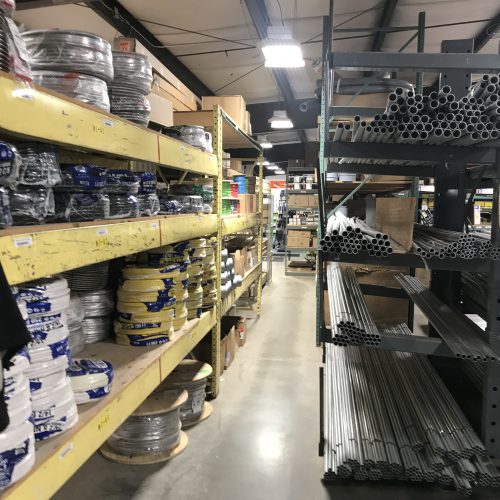“Integrating with your customers’ operations creates stronger loyalty and results in a greater share of spend“: By Vince Sheeran.
If you’re like many distributors, you’ve probably wondered how you’ll survive the competition that is already providing a seamless shopping and buying experience online, with quick and accurate delivery. I see most distributors taking the threat seriously, but, unfortunately, I don’t see many acting.
The good news is: It’s not a hopeless cause. You can still differentiate your business’s service, but how you do it may need to evolve.
It’s no secret that many segments of the distribution industry have lagged other markets when it comes to adopting new technology. E-commerce, for example, has been around for more than 20 years, but many fairly large distributors have only launched their e-commerce platforms in the past five. If you’re a small or mid-sized distribution business, chances are your e-commerce capabilities are still a work in progress.
The bad news: E-commerce is no longer a competitive differentiator – it is fast becoming a requirement for doing business. Starting with commodity purchases, buyers are moving spend to distributors with established e-commerce capabilities. This is widening the gap between distributors who have invested and those who haven’t. Distributors that want to differentiate must do more than just put a basic e-commerce system into place.
Back to the good news: There are more ways to provide a seamless experience than through a traditional e-commerce platform. It is possible to exceed buyers’ increasing demands even if you’re a small or mid-sized distributor. Distributors can no longer just be suppliers of product; the key to success lies in integrating more closely with your customers’ operations. Those that provide business process integration will create stronger customer loyalty and ultimately earn a greater share of customer spend.
This integration protects your business, making it harder for your customer to go to another supplier. Distributors are doing this in many ways. Some distributors serve as an extension of the customer’s engineering team – while others have been successful setting up training programs for their customers.
This is a great start, but some of the most successful distributors, who are also building the strongest customer relationships, are also leveraging data and technology to automate better customer relationships. They’ve combined their expertise with the right technology to help customers reduce inventory costs, become more efficient and grow sales. The winners are building stronger customer relationships with technology as the driver.
Business process integration provides distributors with visibility into their customers’ operations, which in turn helps them to also better serve those customers. Integrating the customers’ demand for material with the ability to fulfill the order is not difficult with today’s cloud-based software platforms. By linking the customers’ material inventory management and replenishment to the order process, a distributor can become the preferred supplier.
For example, the Internet of Things has provided opportunities for distributors to tie themselves to the success of their customers’ production lines; they can track maintenance needs remotely and replace a part before it fails.
We work closely with distributors who sell products to service contractors. They use our cloud-based mobile software to track inventory consumption on the contractors’ fleet of trucks. The automated replenishment feature gives distributors visibility and allows them to provide a much deeper level of service. This helps the service contractors avoid stock-outs, which can cause their technicians to stop a job to go buy the required material. Ultimately, automated inventory replenishment keeps the technician on the job servicing their customers and making more money for the service contractor.
Integrating your processes with your customers’ is a great way to strengthen your position against competitions. Distributors should provide these advanced capabilities before they become, like e-commerce, just another requirement for doing business. Those who don’t will find other competitors tough to beat.
About the Author: Vince Sheeran is CEO of MarginPoint, which partners with distributors to provide mobile inventory management solutions to HVACR, electrical, plumbing, facilities management service contractors. He has more than 30 years of experience in the software and business services industries, including senior leadership positions at Epicor. Reach Sheeran at info@marginpoint.com or visit new.marginpoint.com.
